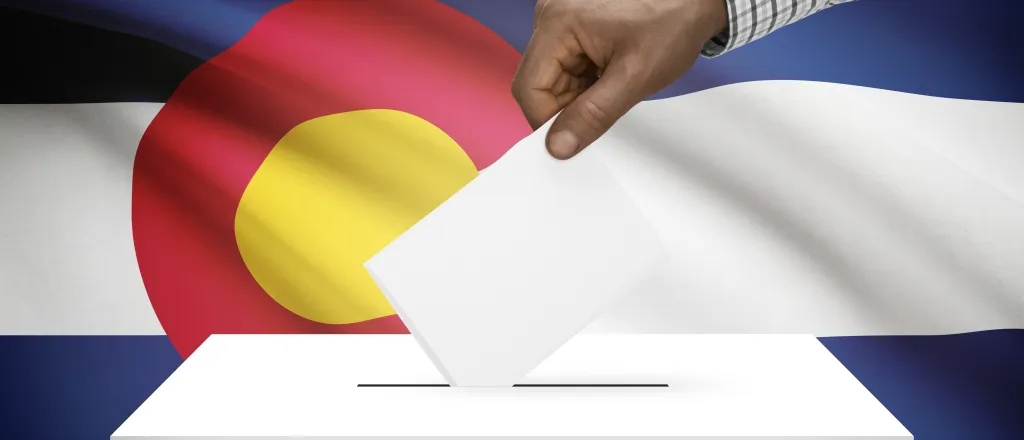
Signatures turned in for ballot initiatives on voter approval of fees, income tax cut measures
(The Center Square) – Backers of two taxpayer-related ballot initiatives submitted petition signatures Thursday to the state Secretary of State’s office.
Jon Caldara, president of the Independence Institute, turned in 197,000 signatures for Initiative 306, which would cut the state income tax rate by 0.08 percent, from 4.63 percent to 4.55 percent.
The Denver-based free-market think tank says the measure is meant to help get “Colorado’s economy back to its former strength, by putting money back into the pockets of those who earned it.”
Over 196,000 signatures were also submitted for Initiative 295, called the “Vote on Fees” initiative, by sponsors Michael Fields and Lindsey Singer of the conservative advocacy group Colorado Rising State Action.
Initiative 295 would require state enterprises projected to collect over $100 million in fees in five years to be approved by voters.
Under Colorado’s Taxpayer’s Bill of Rights (TABOR), all tax increases are subject to statewide approval, but state enterprise funds aren’t subject to TABOR’s revenue cap.
Taxpayer advocacy groups have long argued that lawmakers use fees to work around TABOR.
“Coloradans are sick of the Legislature using massive fees to get around a vote of the people, and the excitement around the ‘Vote on Fees’ initiative is proof of that,” Fields said Thursday.
Both measures need at least 124,632 valid signatures to qualify for November’s ballot.
Left-leaning groups are also collecting signatures for Initiative 271, also called “Fair Tax Colorado,” which would establish a progressive state income tax system.
Fair Tax Colorado’s backers argue the state’s 4.63 percent flat income tax rate isn’t equitable.
The measure would reduce that rate for taxpayers making $250,000 or less annually to 4.58 percent, and raise the rate for those making $250,000 to $500,000 to 7 percent. The rate would also raise to 7.75 percent for incomes of $500,000 to $1 million, and 8.9 percent for incomes above $1 million.
“Because 95 percent of Coloradans have taxable income below $250,000, that means 95 percent of Coloradans will pay less in taxes,” Fair Tax Colorado says.
A fiscal report for the measure says it would raise $2 billion in revenue for fiscal year 2021-22, half of which would be allocated to education.
The initiative, which also needs 124,632 valid signatures to qualify for the ballot, is backed by Vision 2020, a coalition of groups including the Bell Policy Center, Colorado Fiscal Institute, and the Colorado Education Association.

















